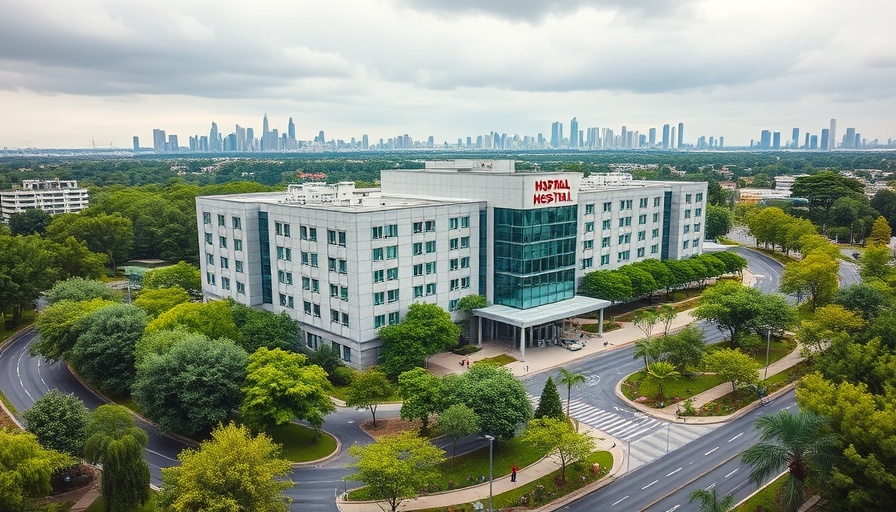
Vietnam's Remarkable Leap into Robotic Neurosurgery
The medical community in Vietnam has made waves, marking a significant milestone with its first-ever robotic-guided brain surgery performed on a child suffering from drug-resistant epilepsy. On June 17, 2025, a 9-year-old boy named B.Q.K. underwent this groundbreaking procedure at Vinmec Central Park International Hospital in Ho Chi Minh City. This surgical venture not only showcases remarkable technical advancement but also opens new doors for pediatric neurosurgery in Southeast Asia.
How Technology is Reshaping Pediatric Neurosurgery
The rise of medical robotics has transformed the landscape of surgery globally, valued at approximately $27.7 billion in 2023, and anticipated to reach an impressive $127 billion by 2033 with a CAGR of 16.5%. North America and Europe remain at the forefront, yet this technology is now making significant inroads into Vietnam's healthcare landscape. Using a robotic guidance system called AutoGuide™, doctors were able to exactly implant electrodes into the child's brain. This precision is critical, especially in high-risk regions like the orbitofrontal cortex and inferior frontal gyrus, which are densely packed with blood vessels and neural connections.
A Breakthrough for Drug-Resistant Epilepsy Treatment
In many cases, epilepsy doesn't respond to conventional drug therapies, making surgery a viable option—especially for children, where seizure localization is notoriously challenging. The World Health Organization (WHO) estimates that about 30% of epilepsy cases are drug-resistant. In this backdrop, Vinmec's move towards robotic-assisted surgery underscores a progressive shift in addressing such medical challenges with technical innovation. The team, under the guidance of Dr. Truong Van Tri along with Japanese specialist Assoc. Prof. Dr. Shunsuke Nakae, innovatively applied stereo-electroencephalography (SEEG) to pinpoint the seizure’s origin accurately.
Post-Surgery Triumph: A Return to Normalcy
Following the robotic intervention, B.Q.K. experienced a remarkable recovery with a staggering 95% reduction in seizure frequency. Perhaps most importantly, there were no neurological deficits reported—an outcome that highlights the operation’s safety and efficacy. The effectiveness of the robotic SEEG signifies a leap forward in treatment options available for pediatric patients, emphasizing that as technology advances, patient outcomes can improve dramatically.
The Future of Neurosurgery in Southeast Asia
As Vinmec Central Park sets a precedent with this milestone, its implications for neuroscience in Southeast Asia are profound. This pioneering endeavor not only cements the hospital's status as a hub of medical excellence but also inspires confidence among other institutions to adopt advanced technologies. With the region's neurosurgical capabilities now running alongside global standards, patient accessibility and treatment outcomes stand to improve significantly.
Why This Innovation Matters
The integration of advanced robotics in delicate surgeries represents more than a technological feat—it symbolizes hope for thousands of children battling severe health conditions. As Vietnam joins other nations in exploring the benefits of robotic surgeries, the future aims not only to treat conditions like drug-resistant epilepsy but to enhance overall healthcare standards. Keeping pace with global advancements, the country is on the road to revolutionizing how it approaches and manages neurological disorders.
The inspiring story of B.Q.K. reminds us of the resilience of youth and the relentless spirit of medical innovation. As these technologies continue to evolve, they promise not only to bring rehabilitation to those desperately in need but also to redefine healthcare as we know it in Vietnam and beyond.
 Add Row
Add Row  Add
Add 




Write A Comment